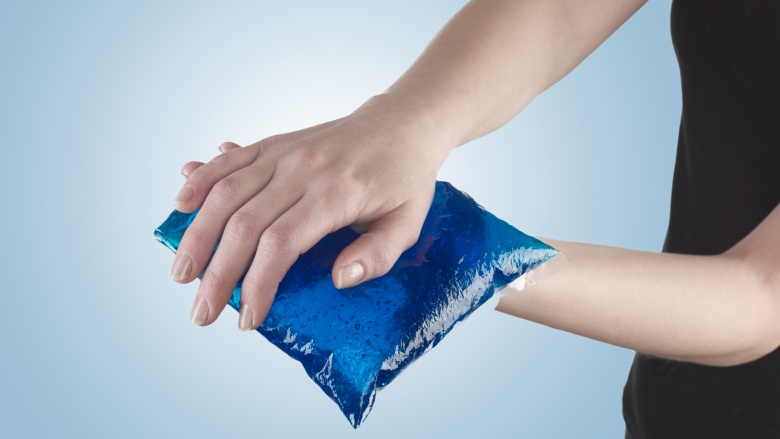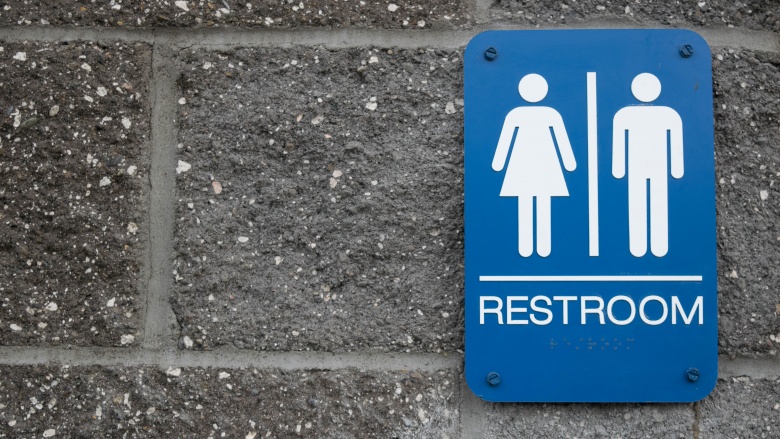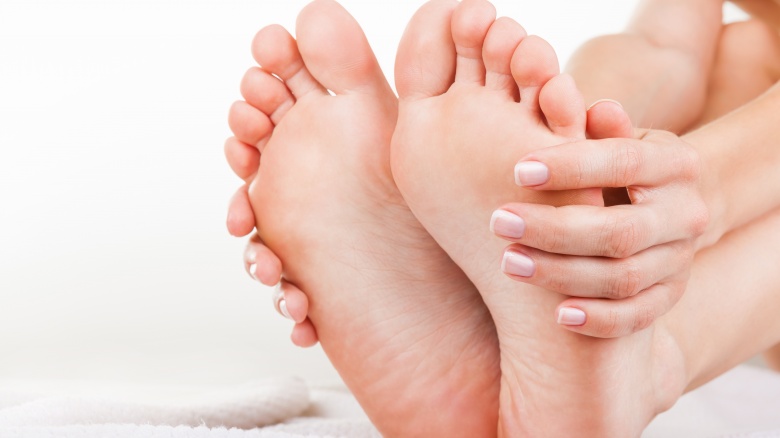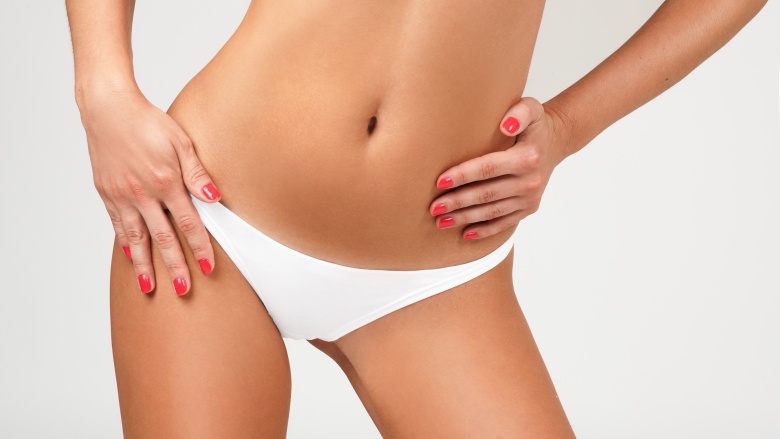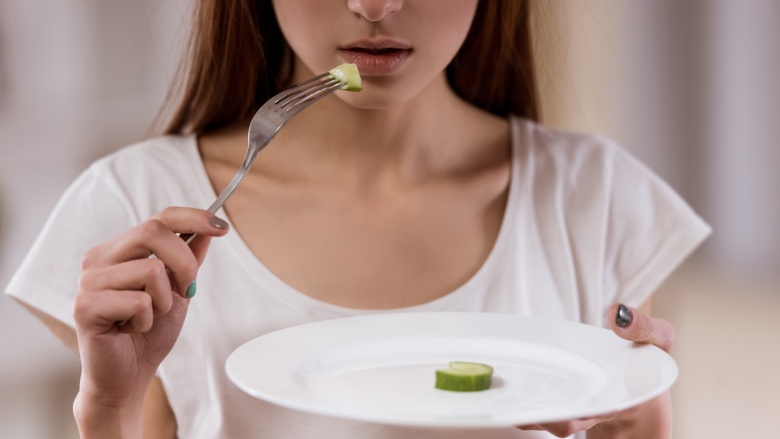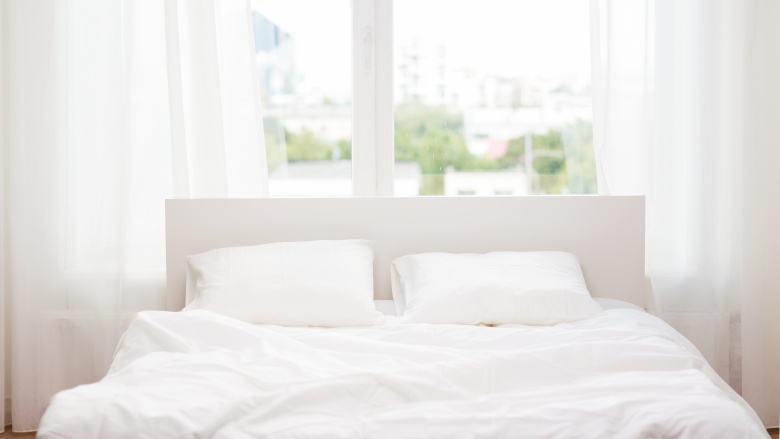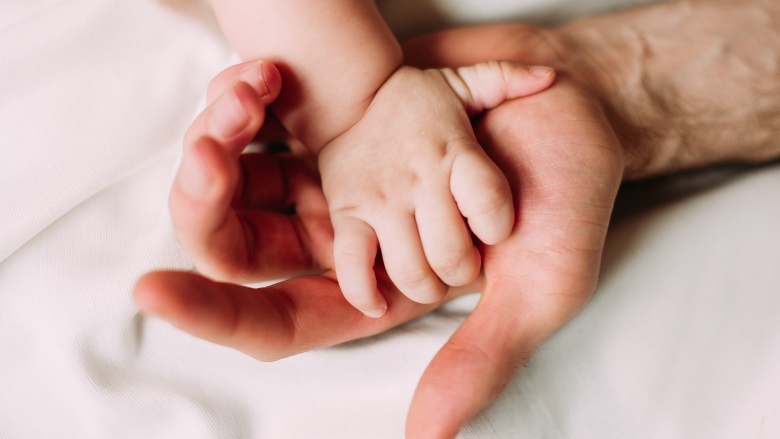What Really Happens To Your Body When You Have Kids
Pregnancy is a crazy time of change for you and your little family. Not only is your body changing before your eyes, but you're actually growing another human being while preparing your outside world for your new addition. Once baby arrives, there will be more changes to come. Sure, you'll be exhausted and a little sore, but the changes go far beyond that. From changes in your hormones to a new shoe size, your body is far from done with changing just because pregnancy is over.
You'll be swollen
If you give birth vaginally (as opposed to a cesarean section), you'll have a lot of inflammation and swelling down there. This can be pretty painful for a lot of women, so it's best to have a plan going in. Most hospitals will provide helpful ice packs for new moms, so take advantage!
Dr. Kelly M. Kasper, MD, a professor in the department of obstetrics and gynecology at Indiana University Health, told The List that it's important for new moms to embrace the ice packs. "Ice helps to decrease the amount of inflammation and swelling, thereby reducing pain, versus heat, which can actually make the inflammation and swelling worse," she explained. "Doctors will also prescribe several different types of local or topical medicines to help decrease perineal discomfort, but patients should try each option and choose which therapy is most helpful." Sitting on a pillow or soft surface will also help with comfort.
You'll still be running for the bathroom
So if you were naive like me, you probably thought that once the baby arrived, you'd be done with racing to the bathroom to avoid an accident. A seven-pound little person sitting on your bladder is not the only reason that you were barely making it to the bathroom in time. After childbirth, our pelvic floor muscles are weak, making it difficult to hold in urine.
"One of the main issues that many women have to deal with almost immediately is incontinence," Dr. Mary Rosser, an assistant professor in the department of obstetrics, gynecology, and women's health at Montefiore Medical Center in the Bronx, told the Huffington Post. Most women notice some kind of bladder control issue after pregnancy and childbirth. "This is due to a combination of 10 months of pelvic pressure and relaxation of the genital tissues," explains New York obstetrician Dr. Kameelah Phillips. "With time and pelvic floor work this usually resolves."
Don't worry, you won't be doomed to worry about incontinence every time you cough or sneeze forever. Kegels are a new mom's best friend. Kegel exercises involve tightening your pelvic floor muscles to strengthen them again. As one of my favorite nursing school professors once explained them, imagine you're sitting on the toilet in a public restroom stall when you hear two men come in the bathroom. You'd immediately stop and hold your urine. That's what a kegel feels like. Rosser recommends to her patients that they start practicing kegels immediately after birth. However, if they're painful, it's best to wait until you're completely healed before pushing it.
Your feet could get bigger
Towards the end of your pregnancy, your normal shoes will most likely be pretty tight because of the swelling in your feet and legs. I remember lying on our bed while my husband helped me take off my boots that were completely stuck after a full day of being on my feet at nine months pregnant.
What most women don't expect is their feet changing permanently. New York obstetrician Dr. Kameelah Phillips shared with The List that many of his patients continue to notice larger feet after the baby arrives, even after the swelling has gone down. "This is because the connective tissue that connects all the little bones in the feet have permanently changed and the foot is now 'longer'," he explained. "Many designer shoes have been donated to smaller feet for this very reason."
Your hips could get wider
Yikes! I'm betting this is not what you wanted to hear, but pregnancy and childbirth can do some crazy things to your body. Dr. Phillips told The List that some women notice their pelvises seem larger after birth. "A hormone called relaxin can cause the pubis symphysis and other joints of the hip bones to literally relax, resulting in this finding," he said. "They may find that with subsequent pregnancies they notice pelvic discomfort a little earlier because of this."
You could be at higher risk for an eating disorder
Suddenly that baby is out, but you don't look all that different. Any new mom who has ever been mistaken as still pregnant can attest that the postpartum body can be hard to accept. However, I was surprised to learn just how traumatic this change can be.
A study published in Psychosomatic Medicine studied women's eating habits and attitudes after giving birth. Many of the mothers in the study reported their weight gain as very stressful. "Concern about residual weight gain after the birth of a child was described by many mothers as particularly distressing," reported the researchers. "And seemed to precipitate a clinical eating disorder in a few cases." The researchers found that the women who were very concerned about weight gain were open to education about eating habits and education. They concluded that "education about how to deal with the changes in weight and shape after pregnancy might decrease the risk of developing frank eating disorder psychopathology."
You won't care about sex
Breaking news! While you're adapting to this new life of no sleep, extra weight, and another human being completely dependent on you for survival, you're not going to be feeling very sexy. Shocking, we know.
Even though this seems pretty self-explanatory, a study published in the Scandinavian Journal of Caring Sciences reported that women's feelings about their sexual lives change after childbirth. "New mothers are concerned with their body image and the ability to adapt to parenting," explained the researchers. "They need sensitive, professional counselling and reassurance about their body, as well as about sexual life after childbirth."
You will need help
Now that your body has done the most incredible thing it can, birthing another human, it needs rest. Not only are you exhausted from sleep deprivation, but childbirth is quite a stressful event for your body, and it needs to heal. Dr. Kasper told The List that she encourages her new mom patients to "be selfish."
"They are adjusting to the physical, hormonal, and emotional changes in their bodies," she explained. "They are learning how to care for a new person." Kasper recommends focusing on bonding with your baby, working on breastfeeding, and sleeping when you can. "These are just a few of the life altering changes that a woman has to navigate after delivery," Kasper said. "A new mom should feel very comfortable asking for help. Whether it be household chores, cooking meals, running errands, watching the baby so she can take a nap, or whatever assistance she may need, she should realize that by being 'selfish' and asking for help that she will be better equipped to care for herself and her baby."
What about the dads?
Thought you were the only one going through massive physical changes with the birth of this baby? Nope, you're partner actually experiences changes as well. And we're not just talking about that sympathy weight he put on from the frequent trips to the frozen yogurt bar.
Neuropsychiatrist Louann Brizendine, author of The Male Brain, shared some of the hormonal changes dads experience with USA Today. First, dads usually experience a spike in the hormone cortisol four to six weeks after learning that their partner is pregnant. Cortisol is our body's stress hormone and responsible for that fight or flight response. This level goes back to normal as your pregnancy progresses. "It is a cortisol surge that wakes our brains up every morning," Brizendine said. "So this surge may put the father-to-be's brain on alert and in a sense wake him up to the impending reality of a new baby's coming, and alert him that he'd better get things ready." Take advantage of this time when your partner is on high-alert! Maybe he can start getting the nursery ready while biology is on your side.
Another change men experience is rather surprising. During your pregnancy, his testosterone level decreases while his prolactin level increases. Prolactin is the hormone responsible for helping mothers produce breast milk. This hormone goes up more than 20 percent in men, but scientists aren't sure why.
These changes may be the body's way of helping your partner adjust to his role as a dad. Brizendine explains that your partner's brain may "begin making the hormonal changes necessary for paternal behavior." Hormone levels start to return to normal once the baby arrives, except for one. Dads who are more involved with raising their children have lower testosterone levels than uninvolved dads. Scientists haven't figured that one out yet.

